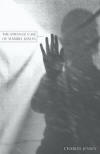The Strange Case of Maribel Dixon
Charles Jensen’s The Strange Case of Maribel Dixon is an ambitious book, highly entertaining yet formally daring. It incorporates a variety of prose and poetic forms to tell a love story that spans most of the twentieth-century and at least two dimensions, all within the space of a mere twenty-one pages. Comprised of diary entries, academic papers, and shredded documents full of supposed “automatic writing,” this slim volume weaves a mysterious love story with far greater gravity than its size on paper would suggest possible.
Charles Jensen’s The Strange Case of Maribel Dixon is an ambitious book, highly entertaining yet formally daring. It incorporates a variety of prose and poetic forms to tell a love story that spans most of the twentieth-century and at least two dimensions, all within the space of a mere twenty-one pages. Comprised of diary entries, academic papers, and shredded documents full of supposed “automatic writing,” this slim volume weaves a mysterious love story with far greater gravity than its size on paper would suggest possible.
The plot revolves around an inventor and physicist named Edward Dixon, who develops a device known as a physiotranslator to reach the Ghost-World, a dimension he’s discovered which is made up of “determinate intangibility,” where all that exists are disembodied voices, or, as Edward calls it, “language and verbalization: the sound wave.” Faced with his wife Maribel’s imminent death from cancer, he uses the physiotranslator to send her into the Ghost-World. The attempt is dangerous, but without the Ghost-World she will die before the end of the year:
It was a risk, Maribel knew, going first. But what was love if not our first and most important risk? She had loved Edward until now. Her molecules refused to unknow him; her energy, she was sure, would remember to love him.
Unfortunately, the physiotranslator only works once, and Edward spends the rest of his life trying to contact Maribel and to follow her into the Ghost-World. Various diaries and documents make up the evidence of these attempts and of Edward’s mental and spiritual disintegration during Maribel’s absence. A bit of Dixon’s diary reveals a message from the Ghost-World, “Be brave. Imagine a room full of shoes, how much potential that is,” while recovered automatic writings offer comforts and accusations, such as the lines “To be shapeless / is what you’ve given me / I can’t describe the form of your voice, its energy / or the timbre of our love, which has its own noise.” Academic articles provide semi-plausible explanations for what eventually happens to Edward and Maribel, but in the end they lack finality, their exasperated authors stating that “we have yet to draw any significant conclusions regarding the Ghost-World, about Maribel Dixon, and about the fateful machine that possibly turned human flesh into dynamic, non-corporeal energy.”
Like the best mysteries, there are no sure answers to be found in the pages of this book. Edward could be mad or brilliant or both, he could be dead or missing or gone into the Ghost-World looking for his lost love. It hardly matters in the end. The final poems and journal entries are less focused on the mystery of Edward’s disintegration, turning instead to the great love story between Edward and Maribel. Early on, Edward says that “to have love and to lose it is our only failure; to have love and destroy it, our only crime.” This conflict is at the crux of his love for Maribel, and his attempts at its resolution are the true heart of The Strange Case of Maribel Dixon. Charles Jensen has accomplished a major work here, one that can be read in a single sitting but which reaches far beyond. Like the voice of Maribel herself, his poetry resonates, haunting its reader with its tale of ghostly love, of beautifully destructive despair, of getting lost and of finally being found.





